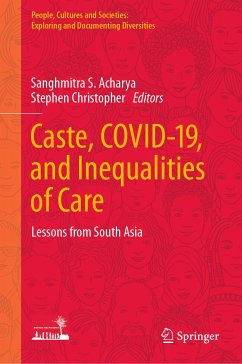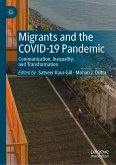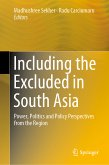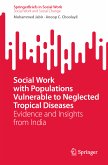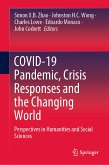This book explores how social discrimination in South Asia contributes to health disparities and impedes well-being. Specifically, it addresses how marginalization shapes health outcomes, both under normal circumstances and specifically during the COVID-19 pandemic. Coming from diverse backgrounds and representing different academic disciplines, the authors have contributed a range of chapters drawing from quantitative and ethnographic material across South Asia. Chapters address reservation politics, tribal lifeways, Dalit exclusions from governmental institutions, Muslim ghettoization, gendered domestic violence, social determinants of health among migrant workers, and the pandemic fallout across South Asian society, among other subjects. Scholars draw on decades of experience and firsthand ethnographic fieldwork among affected communities. The chapters provide an innovative analysis, often in real time, of the human toll of casteism, classism, patriarchy, and religious intolerance-many set against the spectre of COVID-19. Many authors not only present social critiques but also offer specific policy recommendations. The book is of great interest to social scientists, public health practitioners, and policy advocates interested in addressing systemic inequalities and ensuring that future pandemics are not disproportionately felt by the most vulnerable.
Dieser Download kann aus rechtlichen Gründen nur mit Rechnungsadresse in A, B, BG, CY, CZ, D, DK, EW, E, FIN, F, GR, HR, H, IRL, I, LT, L, LR, M, NL, PL, P, R, S, SLO, SK ausgeliefert werden.

